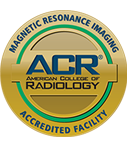MRIs are performed to diagnose disease or evaluate an injury in a specific area of the body. They can also show if treatment has improved your condition. Your doctor may refer you for an MRI to look more closely for:
- Joint injuries such as sprains and fractures, spinal cord injury, and arthritis
- Dementia, brain tumors, multiple sclerosis, and brain injuries -- for instance, damage from stroke
- Heart disease, blocked blood vessels, damage from a heart attack
- Cancers of the liver, breast, ovaries, prostate, liver, and other organs

